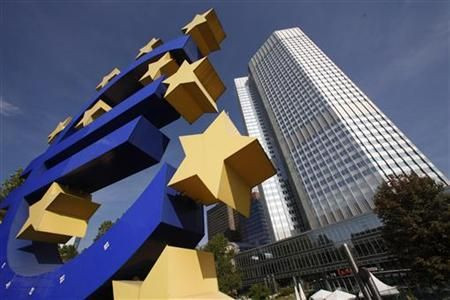Euro Jumps on Franco-German Rescue Promise

The euro rose to its highest in more than a week versus the dollar Monday, supported by a renewed German and French pledge to unveil a comprehensive plan by the end of the month to rescue the region from a sovereign debt crisis.
However, analysts said the rebound could run out of steam if no concrete euro zone plan emerges in coming weeks, with the risk of renewed bickering between euro zone policymakers seen as a threat to quick decision making.
German Chancellor Angela Merkel and French President Nicolas Sarkozy promised after a meeting at the weekend to present a plan before a G20 summit early next month to shore up euro zone banks, settle the Greek debt crisis and help growth in Europe. That gave a gentle boost to risk sentiment and currencies like the Australian dollar.
The pledge was short of details, but the fact that they agreed on a deadline for a common crisis response suggested a major announcement is likely in the next couple of weeks.
The euro climbed more than 1 percent to $1.3584, pulling away from a nine-month low of $1.3145 hit last week on trading platform EBS, as investors unwound some of their short positions initiated earlier.
The single currency's rise gained steam after it rose past stops at $1.3510, $1.3525 and above $1.3550, putting it on track for its best daily performance since the middle of July.
Reassurances from Merkel and Sarkozy have given a boost to risk appetite and the euro, said Jane Foley, senior currency strategist at Rabobank. But once again, if nothing concrete comes up in the coming weeks, the euro will be vulnerable for a downward correction toward $1.30.
Currency speculators increased their bets against the euro last week, with net short positions at 82,697 contracts. Analysts said readjustments of these bearish positions could give the euro some short-term relief.
Investors, including leveraged accounts, have been building up bearish bets against the single currency on worries about the impact of the euro zone's debt crisis on the European banking sector.
Euro/dollar implied volatilities fell as the spot recovered, but risk reversals still showed the bias toward euro downside. The three-month risk reversal was trading fairly elevated at 3.5 in favor or euro puts.
SLOVAKIA VOTE
France, Belgium and Luxembourg agreed a rescue plan for Dexia bank, while other French banks have come under intense pressure because of their exposure to Greece and other weak euro zone countries.
French banks BNP Paribas and Societe Generale denied a report they would seek to raise a combined 11 billion euros as part of a broader European recapitalization plan.
Despite their denials the threat of contagion and the risk of a banking crisis remained.
Traders will eye voting in Slovakia and Malta to ratify the changes to the euro zone rescue fund. They are the only two euro zone countries that still have to approve the changes, and the vote in Slovakia is finely balanced. Any delay on passing the legislation could hit sentiment toward the euro.
Adding to traders concerns for the euro, the next aid tranche for Greece is far from being a done deal. The IMF indicated Greece is at a crossroads and would need to implement much stricter structural reforms than seen so far.
Short positions against the euro have been stopped out which is why the euro has bounced, said Adam Myers, senior currency strategist at Credit Agricole. But there are significant risks for the euro and I will be surprised if it can move past $1.3650.
Traders said short positions in the euro had increased on Friday, when Fitch cut the credit ratings of Italy and Spain.
The euro rose to a 4-1/2 month high against the Swiss franc, advancing to 1.24358 francs on EBS, on lingering speculation that the Swiss authorities could raise the floor on the euro/Swiss franc from 1.20 francs currently.
The Australian dollar was up 1.4 percent at $0.9908, while the New Zealand dollar rose 1.1 percent to $0.7771.
The dollar was marginally lower against the yen at 76.60 yen while against the Swiss franc it lost 1.6 percent to trade at 0.9123 francs. All of which left the dollar index down 1 percent on a basket of currencies at 77.925.
© Copyright Thomson Reuters 2024. All rights reserved.





















